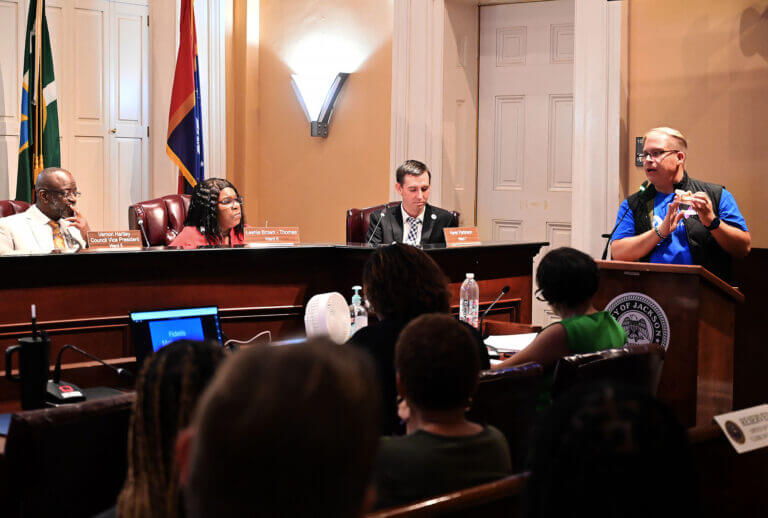

City and county officials across Mississippi have taken new steps to address addiction with opioid settlement money in the wake of Mississippi Today’s investigation into how these funds have been managed and spent.
The newsroom found in September that of the $15.5 million of money nearly 150 local governments had received since 2022 from companies that contributed to thousands of Mississippi overdose deaths, elected leaders used less than $1 million to prevent the crisis from proliferating. That roughly $945,000 was the only part of Mississippi’s total settlement share, over $124 million as of this summer, used to address addiction.
Soon after the investigation was published, Jackson City Council member Kevin Parkinson shared at a late September council meeting how the devastating effects of a deadly overdose can permanently scar any family, including his own.
A few days later, years after Jackson received its first check from lawsuits intended to prevent more drug deaths, Parkinson told Mississippi Today he wants the city to use that money to curb an addiction public health crisis that has claimed the lives of thousands of Mississippians.
The city had received over $500,000 since 2022 from drug companies that contributed to the decades-long opioid crisis. Jackson, so far, has spent that money on routine general expenses such as construction — a common trend among the 147 local governments in the state receiving settlement shares, according to the investigation.
Parkinson, who was elected in June, said he didn’t know what the city had spent its money on until the newsroom’s investigation, and it was disappointing to learn about the dollars funding efforts such as moving city offices.
He said his 32-year-old sister died of an overdose in 2023. She entered addiction treatment but relapsed a number of times, and Parkinson remembers when he and his parents would drive through the Chicago suburbs searching for any sign of her, hoping she was still alive.
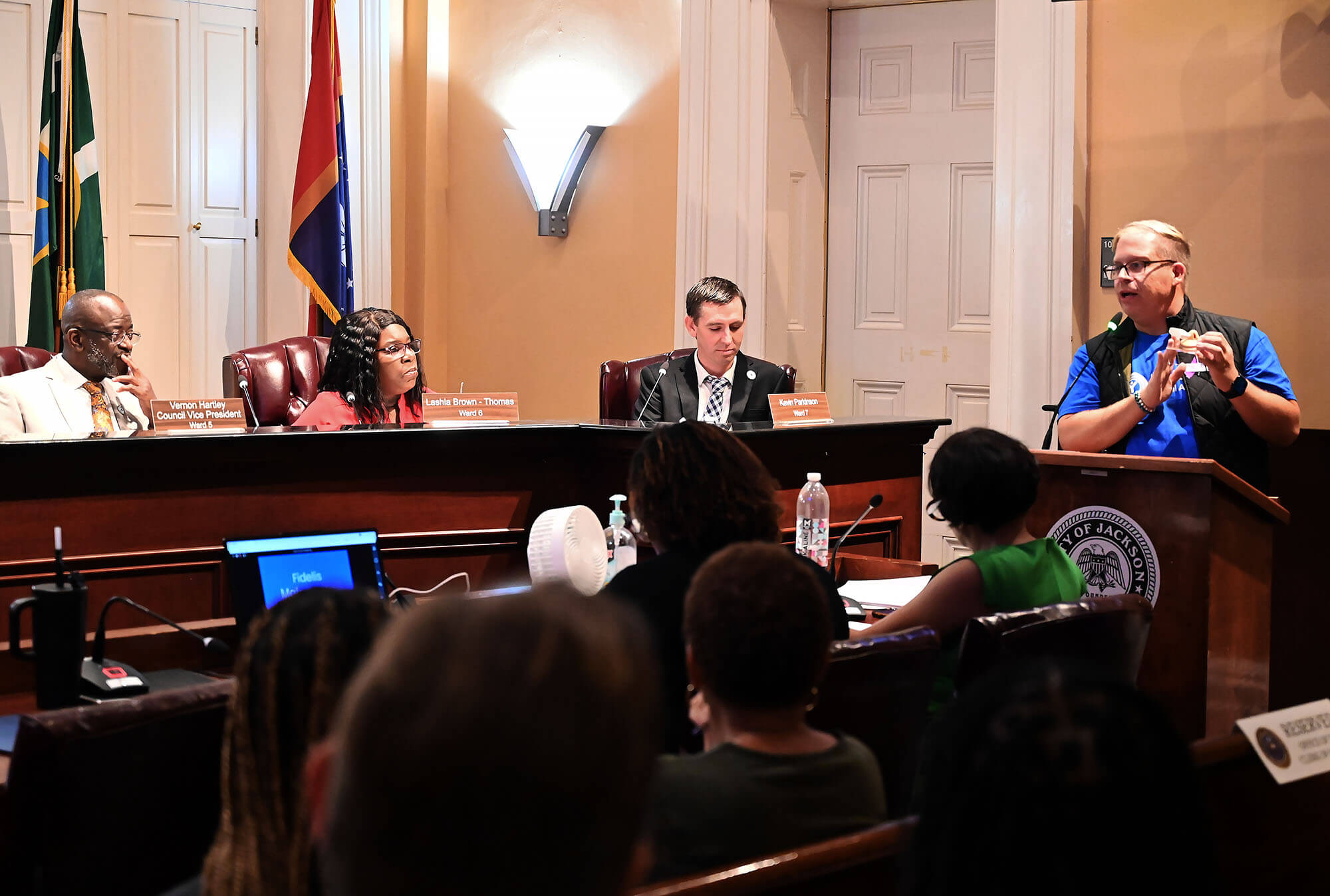
Kevin Parkinson, second from right, listens as Jason McCarty, United Way of the Capital Area program development strategist, shows Jackson City Council members a naloxone kit at City Hall in Jackson on Tuesday, Sept. 23, 2025. Naloxone is a life-saving medication applied to rapidly reverse an opioid overdose. Credit: Vickie D. King/Mississippi Today
Parkinson said he doesn’t see government bodies as the biggest victims in the epidemic, despite the fact Attorney General Lynn Fitch’s office has allowed Mississippi local governments to use tens of millions of opioid settlement dollars for any public purpose.
“Families really, really paid the ultimate price,” he said.
Parkinson said he wants to explore ways for Jackson residents with expertise about the epidemic to share ideas for the money’s best uses — whether that’s through a public hearing or a community-led task force.
Mayor John Horhn, who took office July 1, said in September that he wants to see Jackson’s opioid settlement money spent primarily on violence prevention in the future. In the same speech, he said anything Mississippi governments can do to prevent fentanyl overdoses is a good thing.
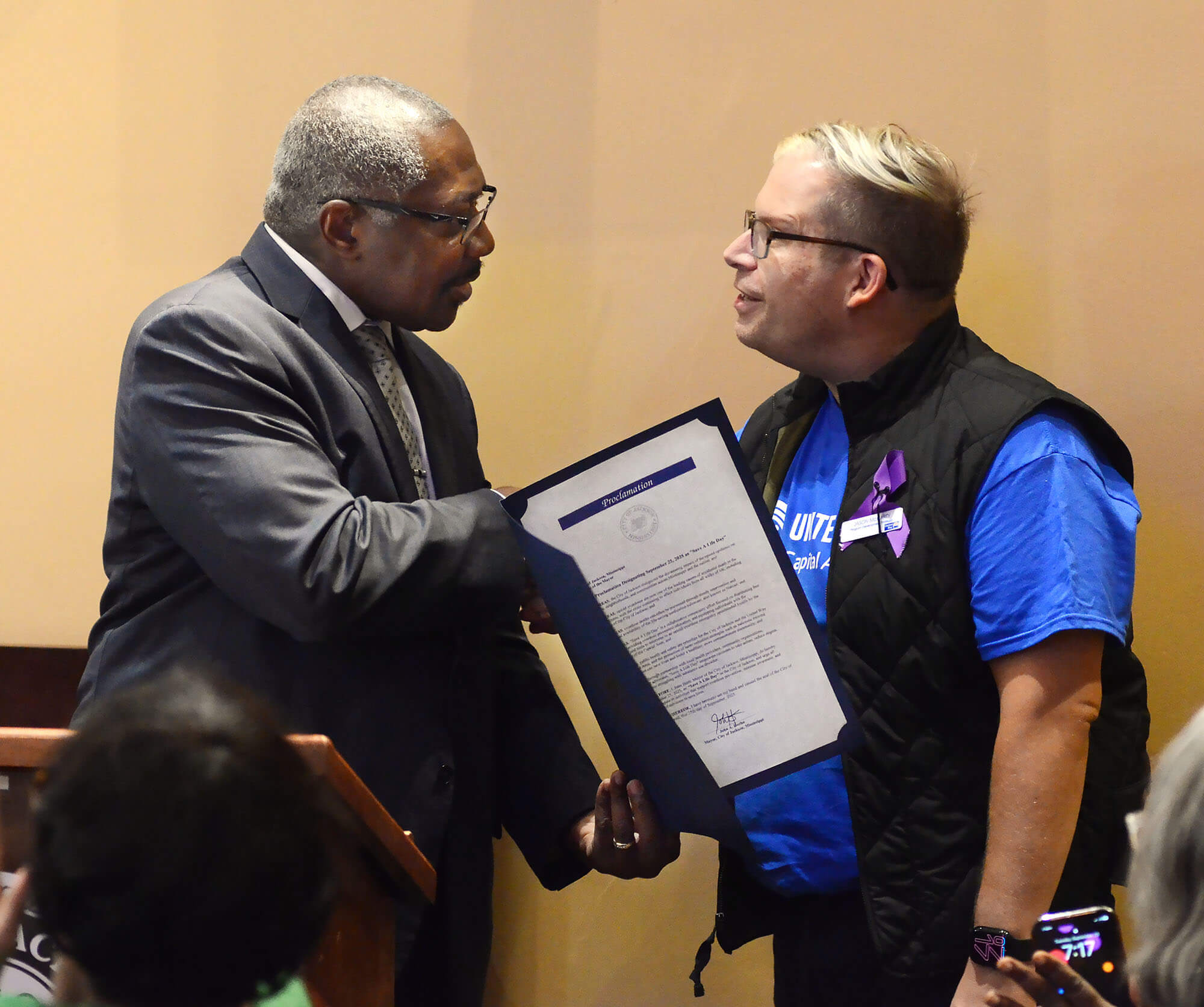
Mayor John Horhn (left) with Jason McCarty, United Way of the Capital Area program development strategist, presents a proclamation, declaring September 25, 2025, Save a Life Day in Jackson, during Tuesday evening’s City Council meeting at City Hall in Jackson, Tuesday, Sept. 23, 2025. Credit: Vickie D. King/Mississippi Today
Nic Lott, Horhn’s spokesperson, did not respond to an email that asked what steps the mayor wanted to take to address the addiction crisis and if Horhn would support a public hearing related to Jackson’s settlement dollars.
Parkinson said Jackson needs to address important problems, including violence, but spending this money on addiction prevention, treatment and recovery could save lives. He said it would’ve been helpful for Fitch to restrict the funds for only those efforts.
“This is a case where I would have appreciated more handcuffs,” he said.
Officials representing four other Mississippi cities and counties, stretching from the Tennessee border to the southern end of the Pearl River, also confirmed they’ve recently taken steps to start spending the settlement money they control to prevent more deadly overdoses.
Officials in Lowndes County plan to send future settlement dollars of up to $50,000 over the next 12 months to Community Counseling Services, the region’s community mental health center, said county administrator James Fisher. Previously, the supervisors had directed over $140,000 for general services.
“Counties are not really equipped to turn funds like that into something meaningful,” Fisher said. “We just decided that they would be better to use the funds than what we were using them for.”
Keenyn Wald, Community Counseling Service’s clinical and operations director, said the center lost state grant funding last spring that it used for its addiction treatment services. Before the cuts, one of those programs helped over a dozen people a month receive treatment while they continued to work.
“Then that decreased pretty dramatically because the funding just stopped,” he said.
While Lowndes County opioid settlement money won’t fully make up that shortfall, Wald said, it will help the program scale up again.
The Yazoo County Board of Supervisors recently agreed to use the dollars it controls to try to prevent more overdoses in the community if it wins additional funds from the state Legislature’s settlement share, according to the Yazoo Herald. The Legislature and the Mississippi Opioid Settlement Fund Advisory Council oversee most of the state’s money from the lawsuits, and they’re expected to start distributing that for opioid-related projects next year.
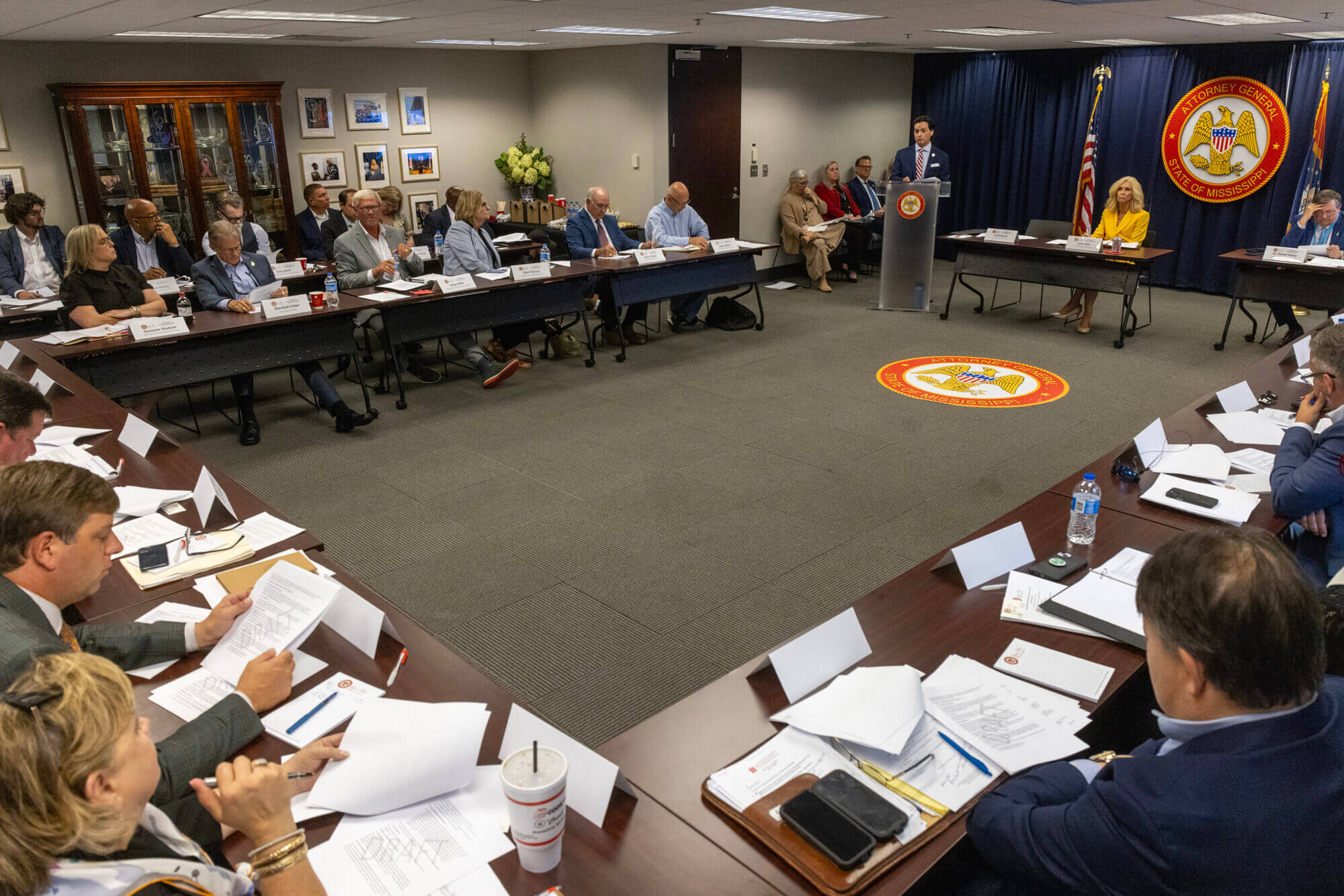
If lawmakers and the council approve Yazoo’s grant, the supervisors said they would combine those dollars with the money sent directly to them to hire two social workers to lead county overdose prevention efforts for four years. They’re calling the program Yazoo Health, Education, Access, Leadership and Sustainability — or Yazoo HEALS.
Supervisors had previously placed around $74,000 of settlement money in the county’s general fund.
“We received the money but really had no plan on how to use the funding for opioid addiction,” said David Peyton, one of the supervisors.
He said if the HEALS plan moves forward, the county’s future settlement checks would also go to this fund. Now that the supervisors and county lobbyist Sam Martin have developed a plan, Peyton said it’s easier to see how the local dollars can prevent deaths.
“If we can help people that have that addiction to find ways to stop using opioids in this way, then we’re really helping the community as a whole, one person at a time,” Peyton said.
Near the state’s northern border, Hernando Mayor Chip Johnson successfully lobbied the city’s aldermen in September to split future opioid settlement dollars between DeSoto County emergency mental health services and a local program to divert people charged with low-level drug crimes away from law enforcement and toward addiction treatment.
In June, Johnson wrote to Mississippi Today that the city was using its $73,000 from the opioid settlement to offset the cost of an ambulance. He recently said he still believes that will prevent more drug deaths but hopes spending money more directly on overdose prevention will go further toward that goal.
Johnson said he would recommend that other Mississippi mayors follow his example in spending settlement money for mental health.
“It’s a long-term solution that is going to work for your city,” he said.
Pearl River County could use its more than $500,000 of unspent opioid settlement money to address addiction but is still figuring out the best way, according to County Administrator Adrain Lumpkin.
He said local addiction treatment nonprofits also applied for opioid settlement grants from the state, which the advisory committee will prioritize if the applicants provide matching funds. If the nonprofits end up winning grants, the county wants to use opioid settlement dollars for those matching funds.
Lumpkin said Pearl River County officials are exploring a school program to dissuade kids from using opioids. They know prevention saves lives and money, but they don’t know the best ways to create that curriculum.
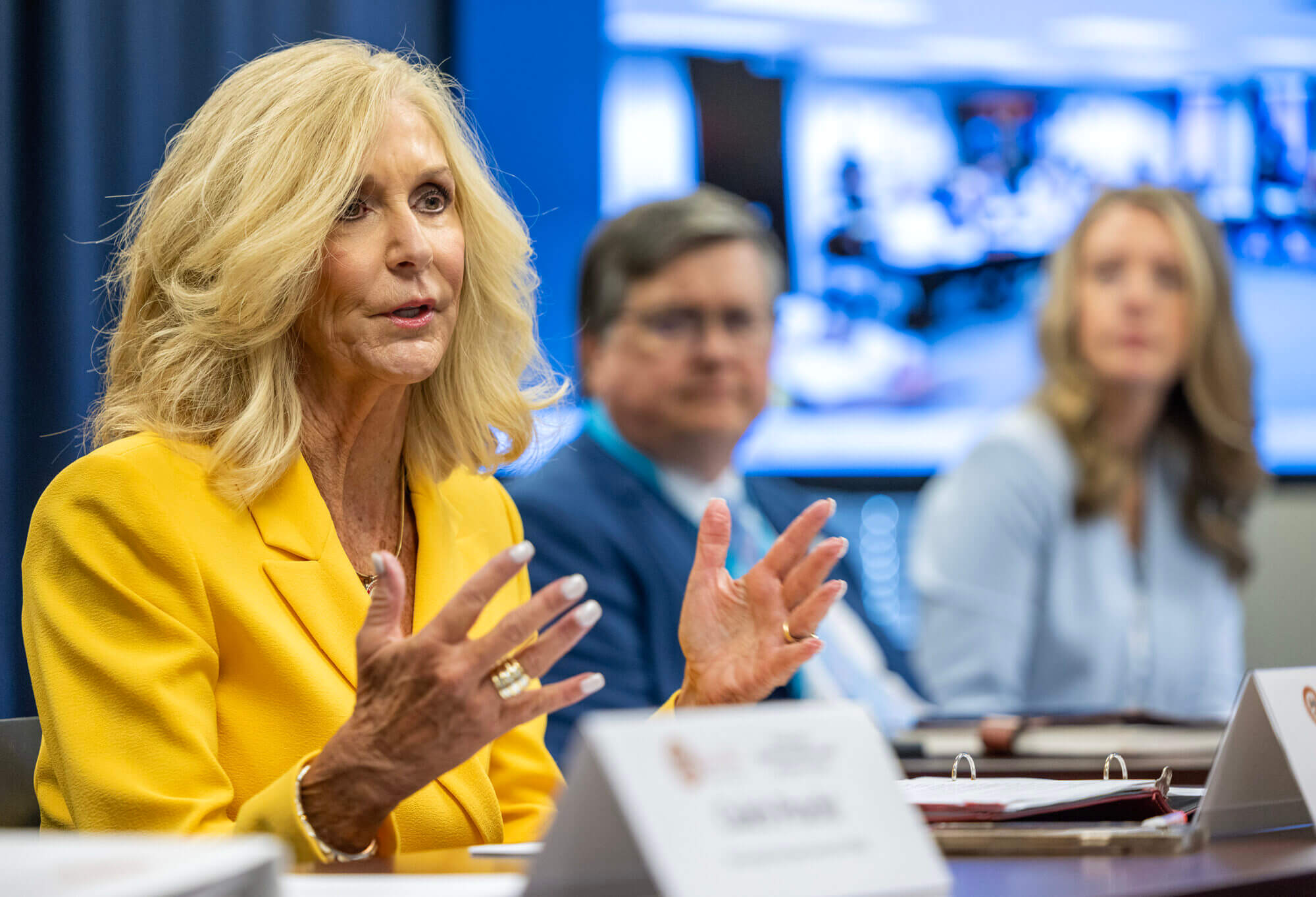
Other states’ governments have provided guides for cities and counties on how to determine a community’s addiction response needs, develop projects to address those needs and combine resources with other nearby governments. Fitch and the Mississippi Legislature haven’t done that, and Lumpkin said it’s been hard to know how to implement Pearl River County’s prevention ambitions.
“My degree is in accounting. It’s not in social work,” Lumpkin said. “We’re going to have to invent a wheel, because we’re not getting it. It’s not passed down.”
As she handed out free doses of the opioid overdose-reversing drug naloxone in Jackson on the city’s “Save a Life Day,” Brittany Denson stressed the life-saving potential of the settlement dollars. She’s in long-term opioid addiction recovery, and she uses her experience to help others at the Hinds County sober living home Grace House who arestruggling with the disease.
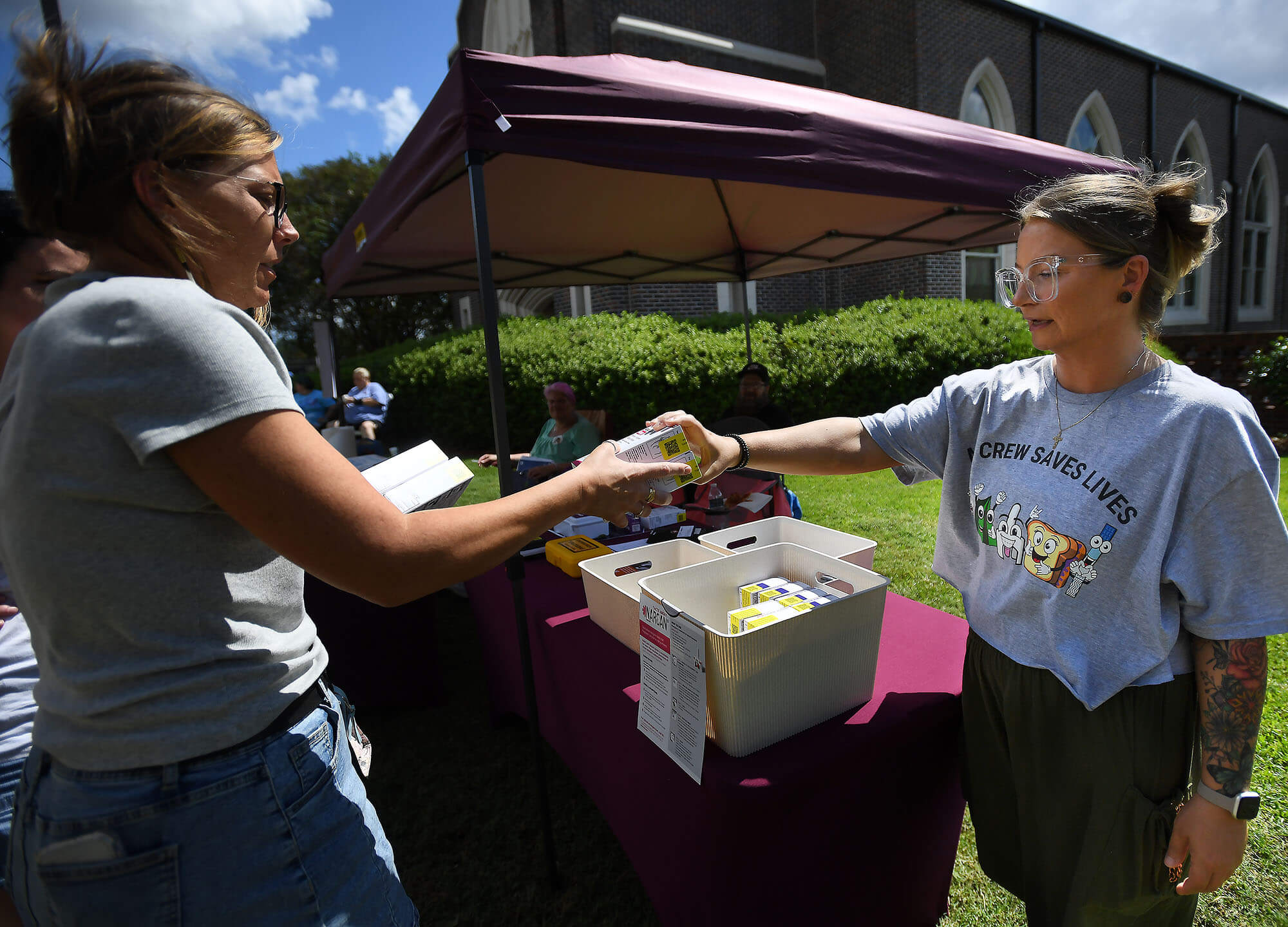
Sarah Donald of Pearl, left, in recovery for nine years, receives naloxone nasal spray from Brittany Denson, the Save a Life Day state co-coordinator and organizer for Hinds County, on Thursday, Sept. 25, 2025 in Jackson. Credit: Vickie D. King/Mississippi Today
Credit: Vickie D. King/Mississippi Today
The recovery residence only serves women, and she said there’s no equivalent nonprofit men’s setup in the area. That’s one of many overdose prevention resource gaps she sees in central Mississippi.
She said public input opportunities, like the ones Parkinson is pondering, are crucial for spending settlement money responsibly.
“It gets real dangerous when people of authority, who don’t understand lived experience, start changing the terms of what recovery looks like and kind of shun people who have that lived experience out of those things.”
- Former Greenwood police officer pleads guilty to federal drug trafficking charges - February 27, 2026
- UMMC officials say normal operations will resume Monday after cyberattack - February 27, 2026
- Hinds County public defender: Office needs additional funding to avert constitutional crisis - February 27, 2026